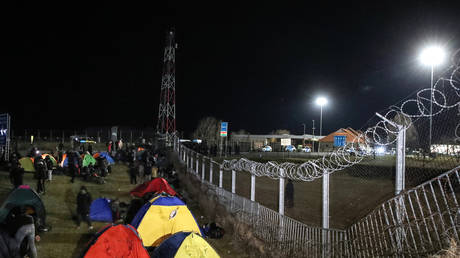
Hungary can apply its own laws in jurisdictional grey areas where “incomplete effectiveness” of EU rules exists, the country’s top court has decided – adding a wrinkle to Budapest’s tussle with Brussels over illegal immigration.
On Friday, the Hungarian Constitutional Court delivered its verdict on a legal motion brought by Prime Minister Viktor Orban’s government earlier this year. The motion challenged an EU court ruling made last year that found Hungary’s policies towards illegal refugees had violated the bloc’s laws.
While declining to conduct a wider “examination of the primacy of EU law” or a specific review of the EU court judgment, the Hungarian court ruled that the country had an “inalienable” constitutional right to sovereignty and self-determination. In this light, the judges said Hungary was allowed to apply its own laws in areas with “incomplete effectiveness” of EU rules.
Speaking to public radio ahead of the decision’s publication, Orban said that a favorable verdict would “mean that a strong legal fence will have been erected next to the physical one,” and pledged to push the EU to reform its immigration policies.
Last December, the European Court of Justice had ruled that Hungary could not indefinitely detain illegal refugees in transit zones on its border with Serbia or deport them without conducting hearings. The court also added that those seeking asylum had a right to judicial reviews of their applications.
However, Hungarian Justice Minister Judit Varga noted in the government’s legal challenge that forcing it to hold asylum hearings raised the possibility that refugees became “de facto part of the country’s population.” The motion said that this would violate Hungary’s constitutional right to decide who it lets into the country.
During a visit to Budapest last month, EU Justice Commissioner Didier Reynders described the motion as “unacceptable.”
The Hungarian court decision comes after a ruling in neighboring Poland earlier this year that challenged the primacy of EU law over incompatibilities with the Polish constitution. Both decisions could potentially spark a legal crisis in the 27-nation bloc.




